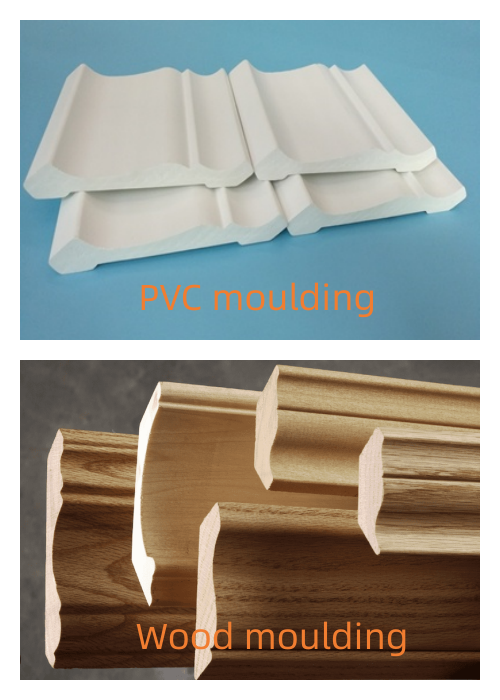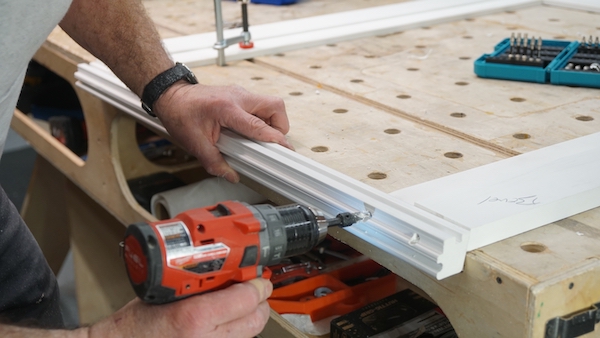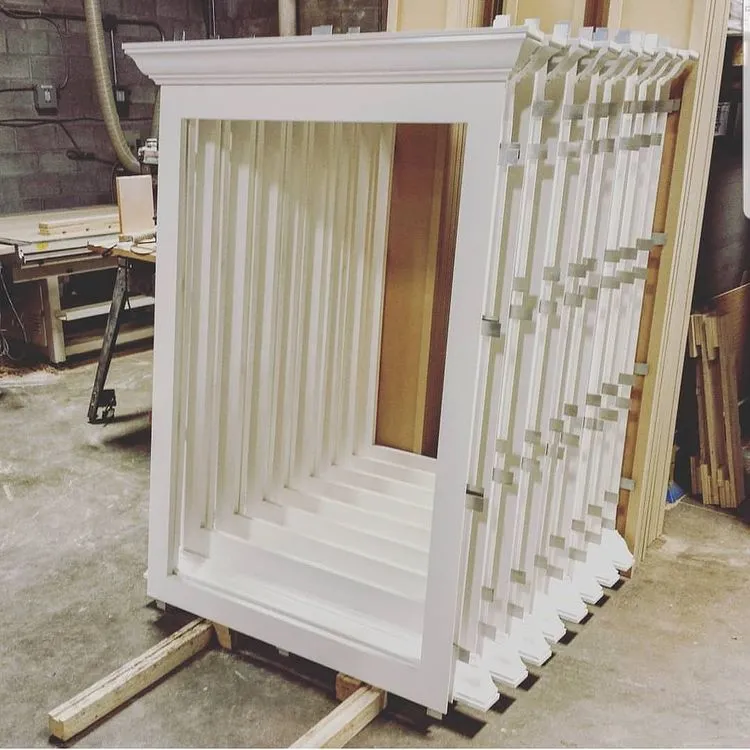In building exterior design, choosing appropriate exterior decoration materials is crucial.
Whether it's a residential or commercial building, exterior decoration not only needs to look great, but it also needs to withstand all weather conditions.
Maintenance costs and time investment are important factors in deciding material selection.
So, what are the differences in maintenance between PVC exterior decoration and traditional wood decoration?
Maintenance advantages of PVC trim moulding
1. Weather resistance and durability
PVC (polyvinyl chloride) material is known for its excellent weather resistance. It is less susceptible to humidity, temperature changes and UV rays and will not crack, warp or rot like wood materials.
Therefore, PVC exterior trim are widely used in PVC door trim and PVC window trim. Whether it is door frames, door edges, door eaves, or window frames, window sills, and window mullions, PVC trim moulding can provide excellent aesthetic effects and durable performance.
Its low maintenance cost and long service life make it an ideal choice for modern architectural decoration.
2. Protection from pests and corrosion
Wooden decking is susceptible to insect infestation, especially termites and other wood pests. In addition, wood is prone to rot in a humid environment and requires regular anti-corrosion treatment. The PVC material itself has insect-proof and anti-corrosion properties and does not require additional chemical treatment, reducing maintenance workload and costs.
3. Cleaning and maintenance
PVC exterior trim has a smooth surface and is not prone to dust and dirt accumulation. Even after prolonged use, a simple scrubbing with water and regular detergent can restore its original shine. Wood trim, on the other hand, needs to be sanded, painted or oiled regularly to maintain its appearance and protective properties.
Maintenance Challenges of Wood trim
1. Environmental impact
Wood moulding is susceptible to environmental factors. For example, in a humid environment, wood absorbs water and swells, and then shrinks when it dries, causing deformation and cracking. In addition, with long-term exposure to sunlight, the color of wood trim will gradually fade, requiring periodic repainting or staining.
2. Labor and time costs
Maintaining wood trim takes a lot of labor and time. The steps such as grinding, painting, and anti-corrosion treatment are tedious and time-consuming. Especially for large buildings, it is a big project. These maintenance tasks usually require professionals to complete, increasing labor costs.
3. Environmental protection and safety
While wood decking materials are naturally environmentally friendly, the chemical coatings and preservatives used in their maintenance can have adverse effects on the environment and human health. PVC materials have no such worries, and their durability and low maintenance requirements also indirectly reduce resource consumption.
Summary: PVC Exterior trim vs Wood trim
To sum up, PVC mouldings has obvious advantages in terms of maintenance. Its weather resistance, insect and corrosion resistance, and ease of cleaning make it an ideal choice for exterior decoration of modern buildings. In contrast, while wood decking offers natural beauty, its high maintenance cost and time investment can be prohibitive for many homeowners. Therefore, considering the economy and convenience in long-term use, PVC exterior decoration is undoubtedly more competitive.




